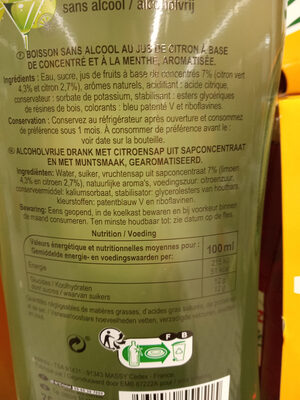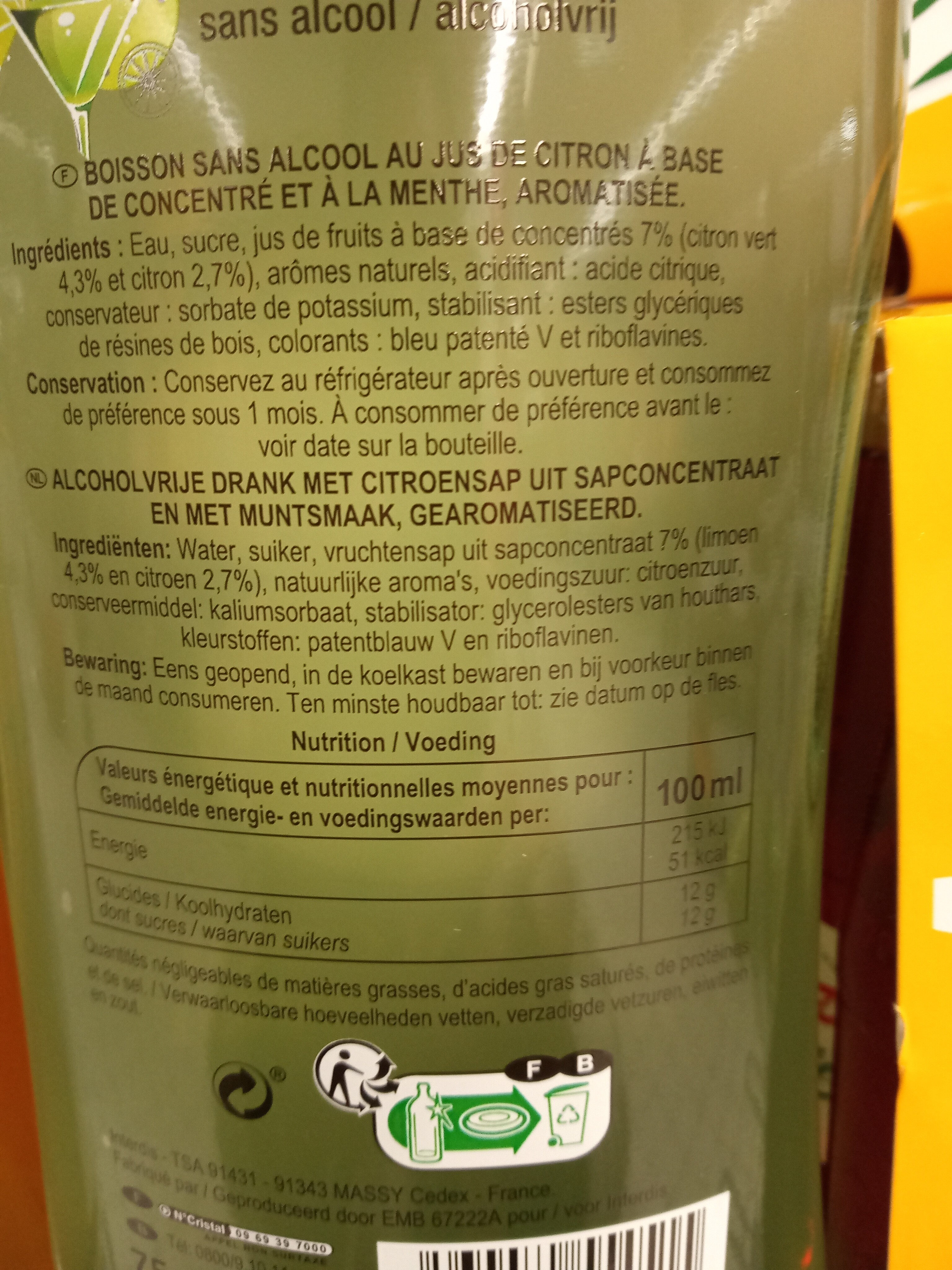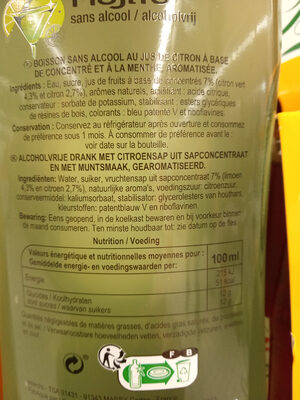Mojito - Carrefour - 75 cl
This product page is not complete. You can help to complete it by editing it and adding more data from the photos we have, or by taking more photos using the app for Android or iPhone/iPad. Thank you!
×
Some of the data for this product has been provided directly by the manufacturer Carrefour.
Barcode: 3560070554515 (EAN / EAN-13)
Common name: Boisson sans alcool aux jus de citrons à base de concentré, à la menthe, aromatisée.
Quantity: 75 cl
Brands: Carrefour
Labels, certifications, awards:
Green Dot, No alcohol, fr:Produits-faisant-reference-au-mojito
Traceability code: EMB 67222A - Ingwiller (Bas-Rhin, France), EMB 67222 - Ingwiller (Bas-Rhin, France)
Stores: Carrefour, carrefour.fr
Countries where sold: France
Matching with your preferences
Environment
Packaging
Transportation
Other information
Conservation conditions: Avant ouverture, conservez votre bouteille à l'abri de la chaleur et de la lumière. Après ouverture, conservez-la au réfrigérateur et consommez-la de préférence sous 1 mois. Pour une dégustation optimale, à consommer de préférence avant le : voir date sur la bouteille.
Customer service: Interdis - TSA 91431 - 91343 MASSY - Cedex - France
Report a problem
Data sources
Product added on by kiliweb
Last edit of product page on by spotter.
Product page also edited by driveoff, openfoodfacts-contributors, org-carrefour, roboto-app, stive24, teolemon, yuka.Loh9INOpGJwkDt3N_Z1lhxuGP8LqW_VXQWUGog, yuka.WG93OFNvWXpoNmtXa3NJdjh4R1BxOTV2N00reFdXS1NJUE0rSUE9PQ.








